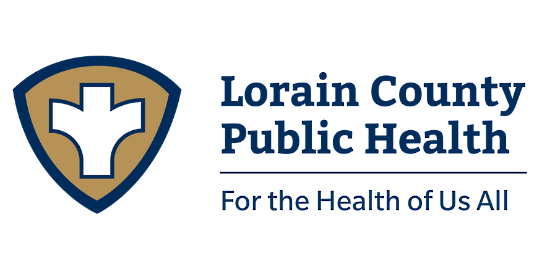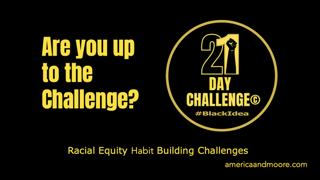YWCA Racial Justice Challenge
YWCA’s Racial Justice Challenge is a virtual learning tool designed to create dedicated time and space to build more effective social justice habits, particularly those dealing with issues of race, power, privilege, and leadership. New content is released on weekdays and participants log on to the challenge app on their phone or visit the website and are presented with 21 days of activities such as reading an article, listening to a podcast, or reflecting on personal experience.
We are excited to announce that YWCA’s Racial Justice Challenge will return for its 6th year on April 1-29, 2024 and registration is OPEN NOW!
2024 Challenge Topics
BODILY AUTONOMY
Bodily autonomy is one of the most fundamental rights we have as human beings. However, across the country, this fundamental right is being challenged. This week, we will have difficult conversations about some of the many ways marginalized bodies are restricted, policed, and violated. Laws have been proposed and passed that limit the rights of trans, gender nonconforming, and non-binary individuals, impacting their access to essential medical care and their ability to exist in public spaces. The fight for reproductive choice is also an ongoing struggle that has taken critical decisions out of the hands of individuals. Weight stigma, which disproportionately impacts women of Color, is yet another way we police bodies that has a profoundly negative impact on people’s physical and mental health. People of color also face discrimination based on their hair texture and style. Each day this week, we will dive into a different aspect of this critical conversation.
FINANCIAL EMPOWERMENT
Women's financial empowerment is critical to achieving gender equity. Generations of women were denied control over their financial life, and it wasn’t until 1974 that women were allowed to have credit cards in their own name.
Today, more women are taking control of their finances, and making important decisions about budgeting, saving, and investing. Despite all of this progress, inequities persist, with bias, and the racial, gender, and motherhood pay gaps continuing to hold women back from reaching their full economic potential. Women are also still expected to do a significant amount of unpaid labor such as childcare, caring for older relatives, and maintaining the home. According to a new study from Payscale, the gender pay gap can mean $900,000 in lost wages over a woman’s lifetime. This loss of financial power has huge implications for women’s long-term quality of life.
GUN VIOLENCE
This week's content will focus on gun violence, which may be distressing for some individuals. If you have been impacted, please consider your well-being before engaging with this material. YWCA is committed to ensuring that communities are safe places for women and girls to thrive. The United States has the highest number of civilian-owned firearms in the world and headlines and research make clear, however, gun violence is a major threat to their health and safety. From school hallways to music festivals and nightclubs to homes and communities across the country, women experience unacceptably high levels of gun violence that leave them at heightened risk of harm and death. This week we will explore the history of gun ownership in America, and how it has impacted the lives of marginalized people.
TRANSPORTATION
Access to transportation impacts every aspect of our lives, from our ability to get to work, access healthcare, and educate our children. With so much at stake, transportation equity is critical to eliminating racism and empowering women. Reimagining the way we think about our roads, buses, and sidewalks is essential for addressing the historical injustices such as segregation and present-day inequities including access to safe transportation in marginalized communities, sexual harassment on public transportation, and roads that are unsafe for pedestrians. These disparities disproportionately affect people of color and low-income individuals, contributing to ongoing economic and social inequalities. Together, we can create transportation systems that serve as catalysts for broader societal change, and foster inclusivity, justice, and empowerment for all.
Presenting Partner
Non-profit Partners
YWCA Racial Justice Challenge Participant
“This challenge each year helps broaden my knowledge and interest in efforts in my community.”
Honoring the work:
Dr. Eddie Moore Jr., Debby Irving, and Dr. Marguerite Penick
YWCA Greater Cleveland wants to thank and acknowledge Dr. Eddie Moore Jr., Debby Irving, and Dr. Marguerite Penick for their leadership in the field of racial equity as exhibited in their 21 Day Racial Equity and Habit Building Challenges and the movement they helped to initiate. They offer 10 different challenges (and growing) to help you build racial equity habits.
YWCA’s content is independently designed, written, and curated by YWCA Greater Cleveland staff as part of racial equity and social justice programs offered to the community.
If you would like to learn more about their work, please visit https://www.americaandmoore.com/
Become a
Racial Justice Challenge Partner!
Click HERE to review the partnership packet.
For additional information, including non-profit pricing and partnerships please contact Paige Robar, Associate Director of Advocacy and Communications, at probar@ywcaofcleveland.org.
Going Nationwide
Thank you to everyone who has participated in the Challenge! Since we launched in 2019, YWCA has had over 30,000 participants across the country take the challenge and reached 5,747 unique ZIP codes.









